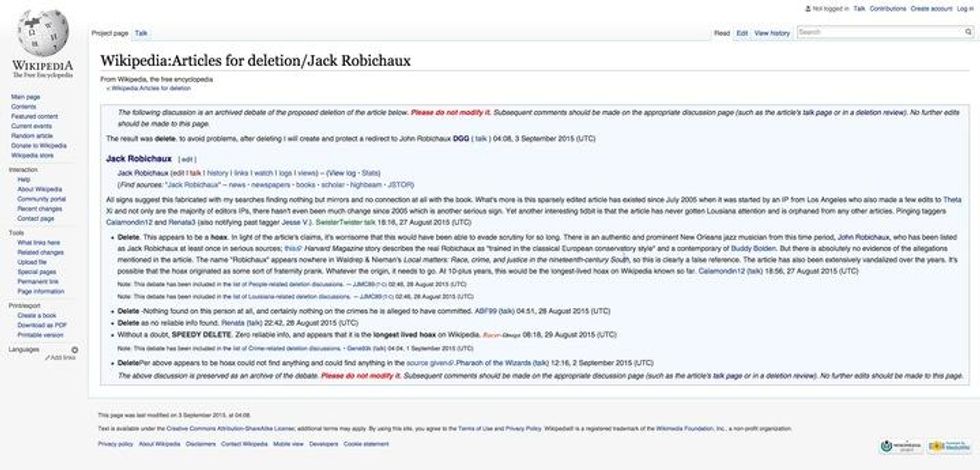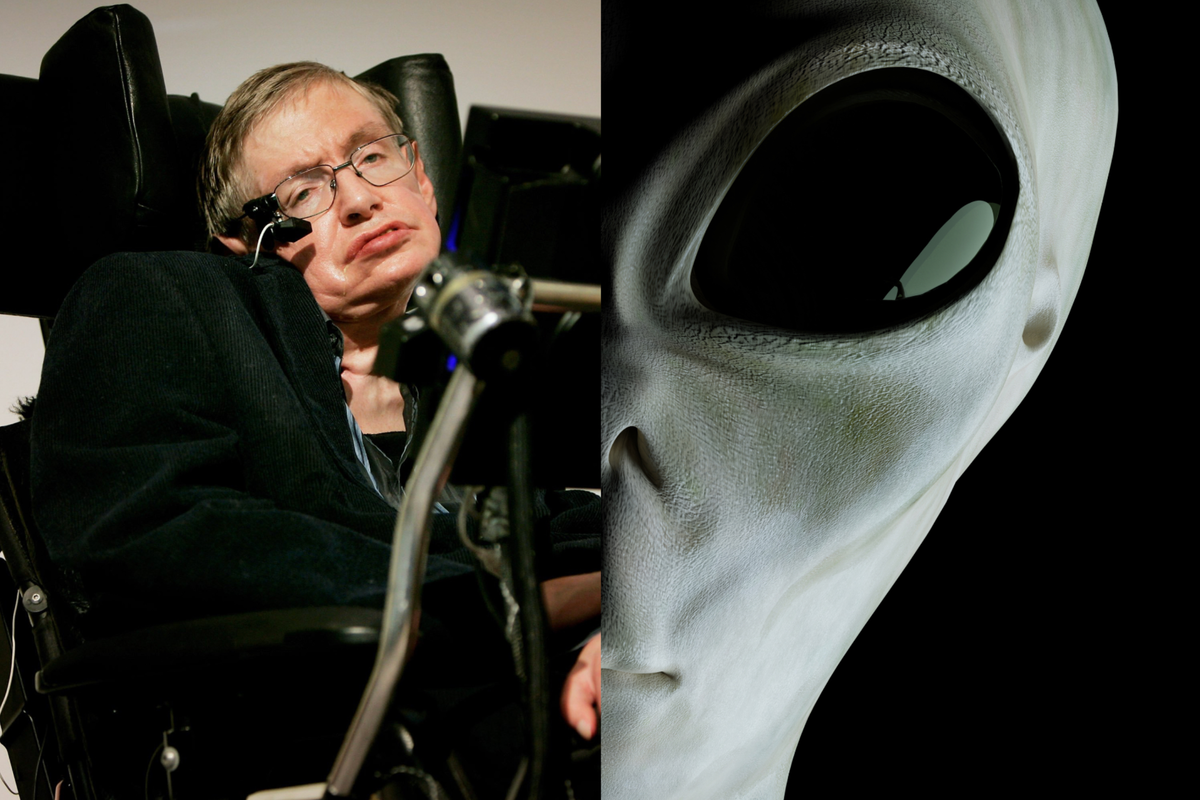News
Louis Dor
Feb 05, 2016
Wikipedia editor Calamondin12 has found the longest-running hoax article in the online encyclopaedia's history.
The discovery was made in August that an entry about Jack Robichaux of New Orleans was incorrect - because the character himself has never existed.
The article, which was created in 2005, read:
Jack Robichaux was a serial rapist in the 19th century, who plagued the township of New Orleans. Most of his victims were overweight females. He was a Creole, although police initially suspected that the assailant was black by his choice of victims. His talents as a jazz musician were praised throughout New Orleans, until his crimes became public knowledge.
References: Christopher Waldrep & Donald G. Nieman (2001). Local matters : race, crime, and justice in the nineteenth-century South. University of Georgia Press. ISBN 0-8203-2247-4.
Turns out that John Robichaux was a real jazz musician - but Jack is completely made up.
In an edit suggestion on the article Calamondin12 advised deleting the article for a lack of evidence and incorrect referencing.
The article has also been extensively vandalised over the years. It's possible that the hoax originated as some sort of fraternity prank. Whatever the origin, it needs to go. At 10-plus years, this would be the longest-lived hoax on Wikipedia known so far.
A speedy deletion occurred in September after others confirmed similar issues with the article.
Instances like this article, created by Bill Maas and Van Robichaux (fraternity brothers at Washington University in St. Louis at the time) show that Wikipedia is fallible, if only rarely.
Maas told Tech Insider via email:
We really just wanted to get fake information on Wikipedia, almost as a challenge. We tried on many different articles, but always failed.
They had also tried to amend the article in February 2007 to show that the fictitious Robichaux was a star football player at Texas Tech.
A Wikipedia senior editor told Tech Insider that the website is becoming better than ever at kerbing articles with misinformation, or hoaxes:
Our vandalism rate is very low. It didn’t used to be, but it is very very low ... because we have people watching.
Top 100
The Conversation (0)













